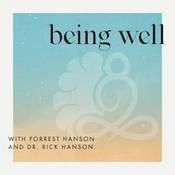Dostępne odcinki
5 z 95
- E93: The Spiritual Domain of the Fourth TrimesterAcross the globe, families welcome newborns with sacred traditions—such as baptism, christening, naming ceremonies, or rituals of blessing—that honor both the child and the family’s spiritual journey. At the same time, more than 2 million babies are stillborn each year worldwide, a heartbreaking reality that leaves lasting emotional and spiritual impacts on families. These moments of joy and grief underscore the deep role spirituality plays in the postpartum experience. Rana Jawish, MD, assistant professor of psychiatry and faculty lead for the Stillbirth Center of Excellence, joins Kirtly Jones, MD, in the spiritual domain of the fourth trimester. They discuss the role of faith and culture in welcoming newborns, and how compassionate care can provide meaning and healing for families navigating profound loss in the fourth trimester.--------25:57
- E92: The Environmental Domain of the Fourth TrimesterOnly one in four infants in the U.S. is exclusively breastfed for the first six months, despite strong evidence linking breastfeeding to better health outcomes for both mother and baby. Success often depends less on individual determination and more on the environments that shape a mother’s daily life—home, workplace, and community. Lactation specialist Anna Burch, RN, joins Kirtly Jones, MD, and Katie Ward, DNP, in the environmental domain of the fourth trimester to explore how surroundings influence postpartum experiences. The conversation examines what makes an ideal feeding environment at home, the impact of workplace and public space accommodations, and how stressors such as noise, lighting, and privacy can affect milk production. They also discuss the social and cultural pressures that shape breastfeeding journeys, the role of family and community support, and the policies that could create more equitable environments for new parents.--------38:16
- E91: The Financial Domain of the Fourth TrimesterChildcare for an infant in the U.S. averages over $11,000 a year—more than triple the federal benchmark for affordability. For many new parents, the financial strain of the fourth trimester starts before the baby arrives and can extend for years. In the financial domain of the fourth trimester, Kirtly Jones, MD, and Katie Ward, DNP, unpack the expenses of welcoming a newborn—from unpaid leave and rising childcare costs to hidden medical bills and the long-term impact on career and retirement savings. The conversation examines disparities in access to resources, the role of social safety nets, and practical ways families can prepare and adapt.--------27:39
- E90: The Intellectual Domain of the Fourth TrimesterMore than 80% of new mothers report changes in memory and attention during the postpartum period—often referred to as “mom brain.” On top of that, the average new parent manages over 100 daily tasks related to their baby's care, contributing to what researchers call the “maternal mental load.” In the intellectual domain of the fourth trimester, Kirtly Jones, MD, and Katie Ward, DNP, explore how new parents cognitively adapt after childbirth. Perinatal mental health specialist Jamie Hales joins the conversation to unpack the neurological and intellectual shifts that shape early parenthood. From navigating the cognitive overload of caregiving to reshaping personal identity, the discussion offers insight into how people make meaning of their birth experiences and mentally transition into their new roles.--------31:22
- E89: The Social Domain of the Fourth TrimesterMore than half of new mothers report feeling lonely or isolated after giving birth. Research shows that strong social support during the postpartum period is one of the most protective factors against perinatal depression. Gwen Latendresse, PhD—a certified nurse midwife and perinatal mental health researcher—joins Katie Ward, DNP, in the social domain of the fourth trimester to explore how social connection shapes postpartum recovery. From family and peer support to community care and digital interventions, they examine how a person's social environment can either buffer or intensify the emotional demands of new parenthood.--------30:09
Więcej Zdrowie i Fitness podcastów
Trendy w podcaście Zdrowie i Fitness
O 7 Domains of Women's Health
Conversations for all the women in your life. Women's health encompasses far more than the issues discussed in a doctor's office—it is deeply intertwined with the unique experiences, challenges, and joys that shape a woman's life. Every medical concern is influenced by the complexities of a woman's life, for better and for worse. Kirtly Jones, MD, and Katie Ward, DNP, WHNP, look at women's health through the seven essential domains of well-being: physical, emotional, social, intellectual, financial, environmental, and spiritual health. Together, they offer insightful, compassionate conversations designed to empower women in every aspect of their lives. These discussions are not just for women, but for anyone who cares about the women in their lives. Join us as we embark on this journey together and foster an understanding of women's health in all its dimensions.
Strona internetowa podcastuSłuchaj 7 Domains of Women's Health, Zwierciadło Podcasty i wielu innych podcastów z całego świata dzięki aplikacji radio.pl

Uzyskaj bezpłatną aplikację radio.pl
- Stacje i podcasty do zakładek
- Strumieniuj przez Wi-Fi lub Bluetooth
- Obsługuje Carplay & Android Auto
- Jeszcze więcej funkcjonalności
Uzyskaj bezpłatną aplikację radio.pl
- Stacje i podcasty do zakładek
- Strumieniuj przez Wi-Fi lub Bluetooth
- Obsługuje Carplay & Android Auto
- Jeszcze więcej funkcjonalności


7 Domains of Women's Health
Zeskanuj kod,
pobierz aplikację,
zacznij słuchać.
pobierz aplikację,
zacznij słuchać.




































